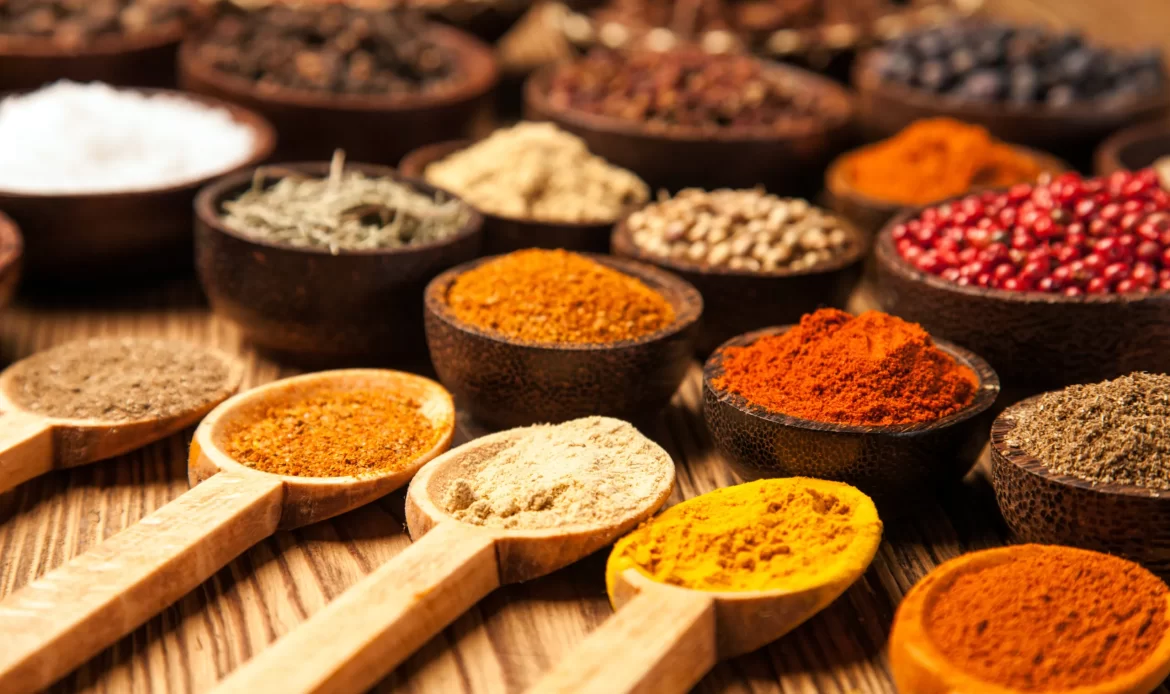
Spices are the heart and soul of Nigerian cuisine, adding vibrant flavors and aromatic scents to our beloved dishes. From the fiery kick of pepper to the earthy richness of turmeric, these spices have fascinating origins that span continents and centuries.
Let’s embark on a flavorful journey through time to uncover the surprising origins of some spices that are staples in Nigerian kitchens.
1. Black Pepper: The Global Traveller from India
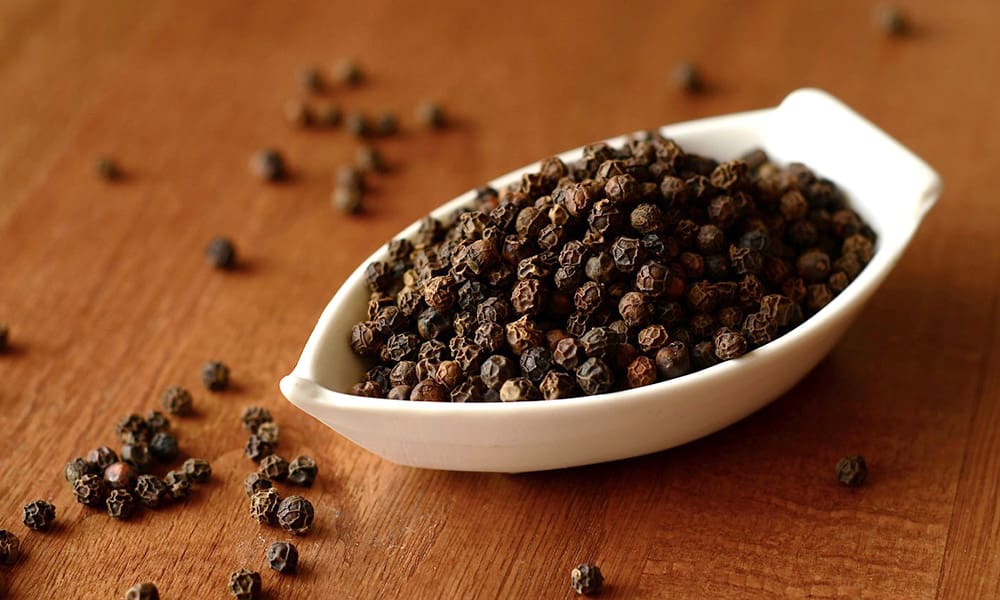
Did you know that black pepper, a staple in Nigerian soups and stews, originates from the Malabar Coast of India? Known as the “king of spices,” black pepper has been traded for thousands of years, valued so highly in ancient Rome that it was used as currency. Its journey to Nigeria is a testament to its universal appeal, adding a distinctive heat and depth to dishes like pepper soup and jollof rice.
2. Ginger: The Ancient Healer from China
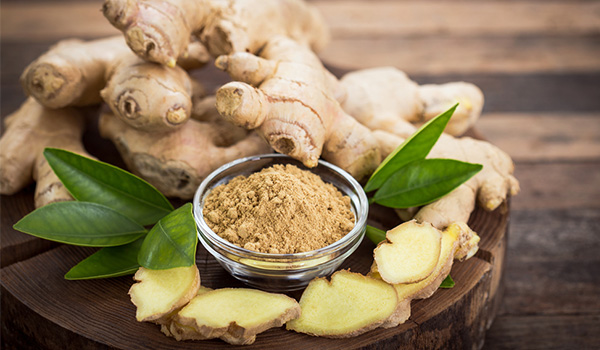
With its spicy and zesty kick, ginger has been a favorite in Nigerian cuisine for generations. This knobby root, first cultivated in China over 5,000 years ago, made its way to Africa through ancient trade routes. Ginger’s bold flavor and health benefits have earned it a permanent place in our pepper soups, zobo drinks, and teas, where it continues to invigorate our palates and soothe our ailments.
Read: Ten Superfoods to Include in Your Diet and Their Benefits
3. Turmeric: The Golden Spice of India
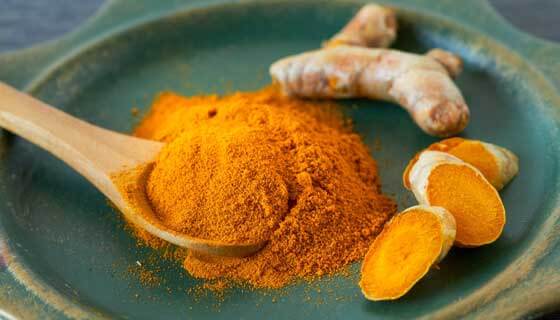
Turmeric, known for its vibrant yellow color and earthy flavor, hails from India. Used for thousands of years in Ayurvedic medicine and cooking, turmeric’s anti-inflammatory properties and rich taste have made it popular worldwide. It is often used in stews, curries, and even as a natural dye in Nigeria. Its journey from the fields of India to Nigerian kitchens highlights its versatility and enduring appeal.
Outside the kitchen, it can also be used to disinfect wounds, relieve burns, add an extra golden glow to facial moisturizer, and more.
4. Cloves: The Aromatic Buds from the Spice Islands
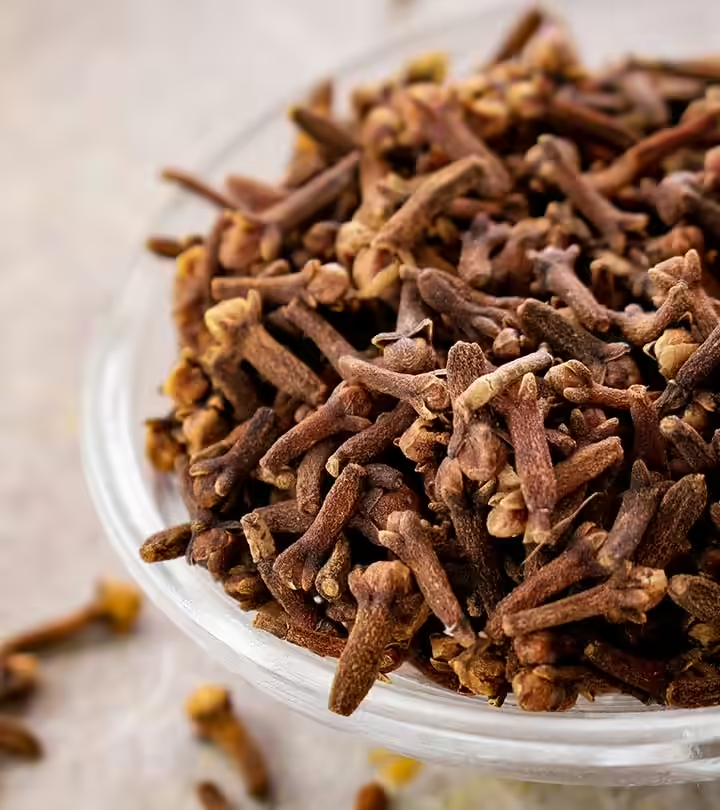
Cloves (popularly known as kanafuru in Yoruba, kanumfari in Hausa, and kanafure in Igbo) is a fragrant spice that adds a warm, sweet flavor to many Nigerian dishes. They originate from the Maluku Islands in Indonesia. These aromatic buds were highly prized in ancient trade and sought after by Europeans and Arabs alike. Today, cloves are a key ingredient in Nigerian pepper soup, rice dishes, and festive pastries, adding a distinctive aroma and depth of flavor.
5. Nutmeg: The Twin Spice from the Banda Islands
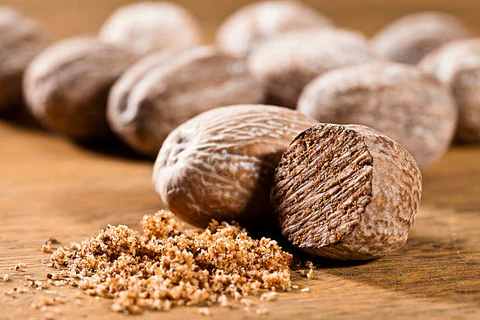
Nutmeg and its sibling mace come from the seed of the nutmeg tree, native to the Banda Islands in Indonesia. The warm, nutty flavor of nutmeg and the spicy undertones of mace have been cherished for centuries. In Nigeria, nutmeg is a beloved spice used in baking, soups, and rice dishes, infusing them with its rich, aromatic essence.
6. Garlic: The Ancient Bulb from Asia
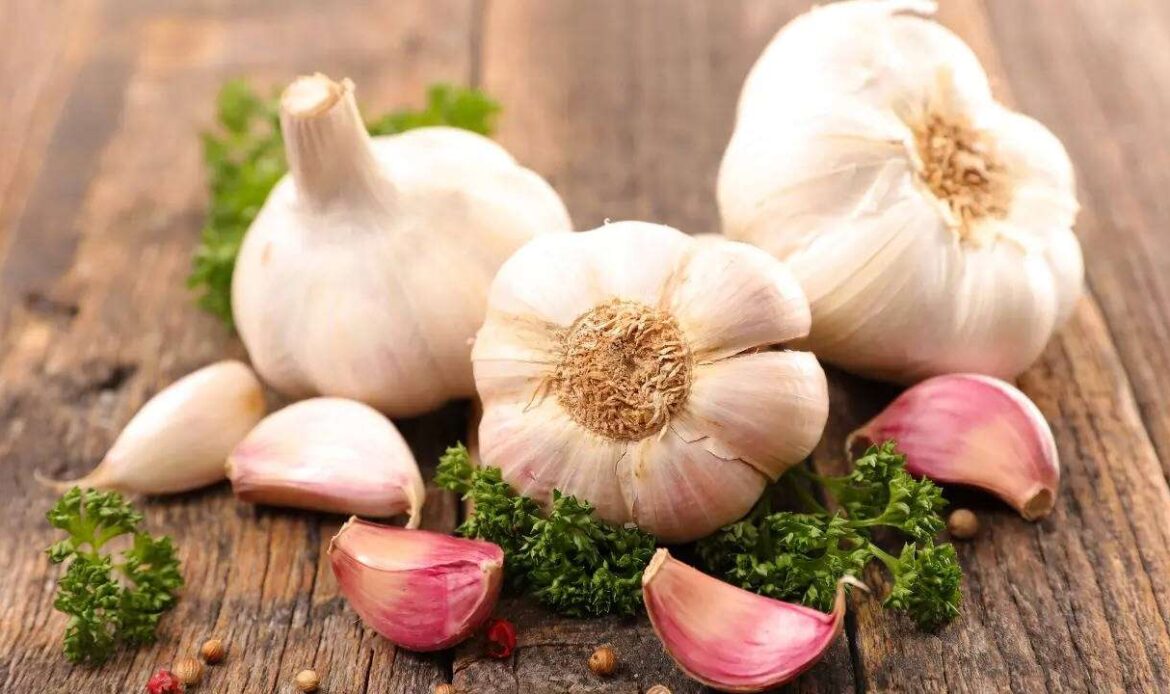
Garlic, with its spicy aroma and robust flavor, has been used for over 7,000 years. Originating from Asia, garlic spread across the globe, becoming a culinary staple in many cultures. In Nigerian cuisine, garlic is essential in marinades, stews, and sauces, where it enhances the flavors and adds a healthful boost to our meals.
Read: Tasty Ghanaian Dishes You Must Try
7. Cinnamon: The Sweet Bark from Sri Lanka
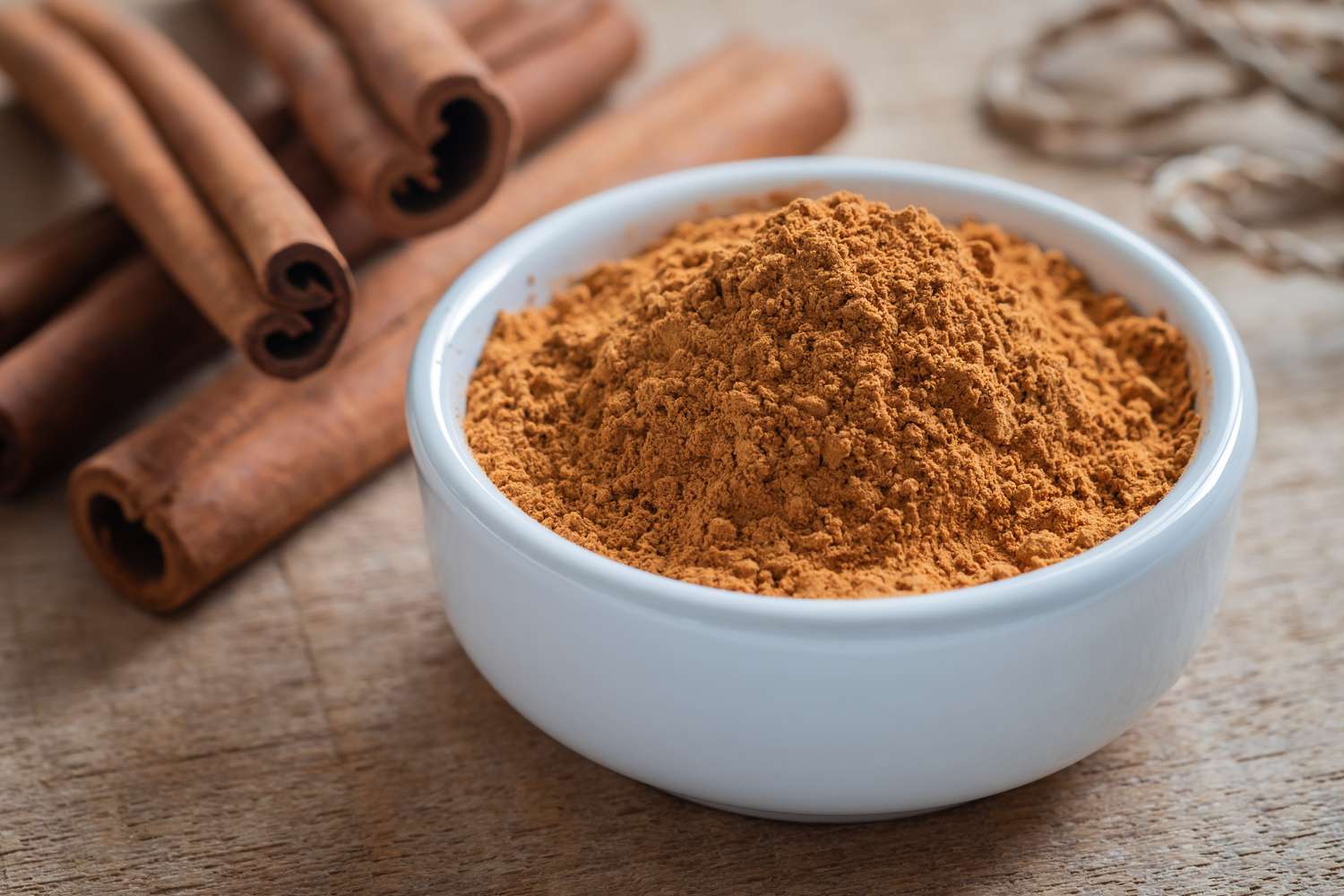
Cinnamon, the sweet and warming spice, comes from the bark of trees native to Sri Lanka. In ancient times, it was considered more valuable than gold, coveted by traders and royalty alike. In Nigeria, cinnamon’s sweet, woody flavor is used in baking and beverages, bringing exotic warmth to our culinary creations.
The spices that grace Nigerian kitchens are much more than just ingredients; they are the legacy of ancient civilizations, epic voyages, and the rich tapestry of human culture. Each spice tells a story of discovery, trade, and tradition, enriching our culinary experiences with flavors from around the globe.
So, next time you add ginger to your zobo or sprinkle nutmeg on your rice pudding, remember these beloved spices’ rich history and surprising origins. Bon appétit!
